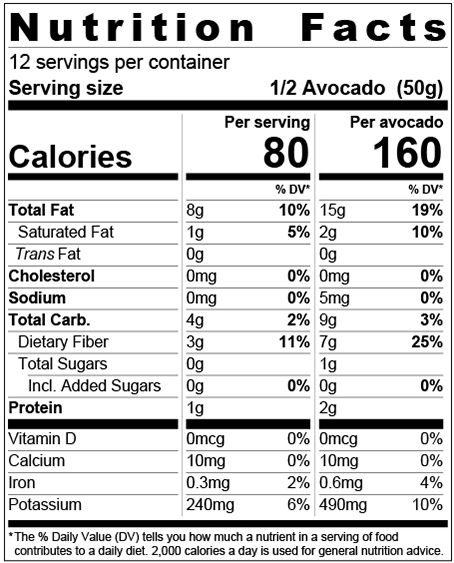Avocados are a nutrient-dense fruit that is rich in healthy fats, particularly monounsaturated fats. One medium-sized avocado contains approximately 240 calories, making it a calorie-dense food. However, the majority of these calories come from healthy fats, which can help support heart health and satiety.
In addition to healthy fats, avocados also contain a variety of important nutrients, including fiber, vitamin K, vitamin C, vitamin E, and B vitamins. They are also a good source of potassium, which is important for maintaining healthy blood pressure levels.
Nutrition Information For Avocado
2. Avocado Micronutrients and Health Benefits
Avocados are not only delicious but also packed with essential vitamins and minerals. They are a great source of antioxidants, including lutein and zeaxanthin, which are important for eye health. The monounsaturated fats in avocados can also help improve cholesterol levels and reduce inflammation in the body.
Furthermore, avocados are a versatile ingredient that can be used in a variety of dishes, from salads to smoothies to guacamole. They can add creaminess and richness to meals while providing a host of health benefits.
3. How to Incorporate Avocado Into Your Diet
There are countless ways to enjoy avocados as part of a healthy diet. You can slice them onto toast, mash them into guacamole, blend them into smoothies, or use them as a topping for salads. Avocados can also be used as a substitute for unhealthy fats in recipes, such as butter or mayonnaise.
When selecting avocados, look for ones that are firm but yield slightly to gentle pressure. To ripen avocados quickly, place them in a paper bag with a banana or apple. Once ripe, store avocados in the refrigerator to extend their shelf life.
